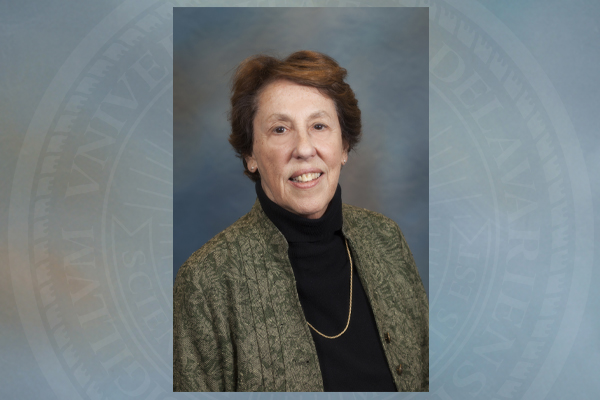
Women's health
New book examines the rethinking of women's health issues
9:42 a.m., May 16, 2014--With longer life expectancy and growing societal presence, the discussion of women’s health care needs commands an increasing presence on the nation’s political and public policy agendas.
In their new book The Politics of Women’s Health Care in the United States (Palgrave Macmillan), co-authors Marian Lief Palley and Howard A. Palley examine the political and public policy implications driven by the changing definitions of women’s health care needs and services.
People Stories
'Resilience Engineering'
Reviresco June run
Marian Lief Palley is professor emerita in the Department of Political Science and International Relations at the University of Delaware, and Howard A. Palley is professor emeritus of social policy and a Distinguished Fellow of the Institute for Human Services Policy at the University of Maryland School of Social Work.
“It is important to understand the changing public policies if one is to truly appreciate all of the change that has transpired in the last 50 years,” Marian Palley said. “This reality is what motivated the initial impetus to write this book.”
In the book’s abstract, the authors note, “The organized women’s movement has been successful in improving opportunities for women in a number of areas such as education, business, sports and other professions.”
Looking at historical and cultural perspectives, the authors explore the rethinking of the health care agenda of women in America, drawing attention to role of politics in influencing this agenda.
Present-day women’s health issues considered by the authors include women’s reproductive health, the politicization of abortion, violence against women, diseases that afflict older women, and the politics of disease.
“Some significant changes in women’s roles in society occurred as the second wave women’s rights movement took root in the late 1960s,” the Palleys said. “As women became more involved in the paid work force and as women’s educational opportunities expanded, questions regarding women’s health care also began to change.”
The authors noted that at the national level, some elements of women’s health care needs are being recognized.
“In 1990, Dr. Bernadine Healy was appointed director of the National Institutes of Health, the first woman appointed to the post,” they said. “Early in her tenure as director of the NIH she required that all research protocols supported by the NIH, other than male-specific diseases, must include women in the sample population. Prior to this ruling women were usually excluded from research protocols.”
While sexuality and reproduction remain on the women’s health care agenda, these concerns have broadened to encompass preventing unwanted pregnancies and terminating unwanted pregnancies. The book also calls attention to the restrictions on the availability of women to terminate pregnancies and how the increasing restrictions on the availability of contraception have led to an increasing politicization of reproductive health care issues.
“Chronic diseases associated with aging, such as Alzheimer’s disease, Parkinson’s disease and arthritis are understood to afflict more women than men since women have, on average, a long life expectancy than men,” the Palleys said. “Health issues related to longer life expectancies, including heart attacks and strokes, which were previously assumed to be the diseases of men, also are being understood as conditions that affect women too.”
The authors note that despite the broadened definition of the women’s health agenda there are still barriers to health care for many women.
“There are certainly issues of class that come into play and not all women have equal access to quality care,” the Palleys said. “If one looks at state legislative bodies it becomes apparent that when there are more women in elected office there tends to be movement towards greater parity of care both among women and between men and women.”
Article by Jerry Rhodes








